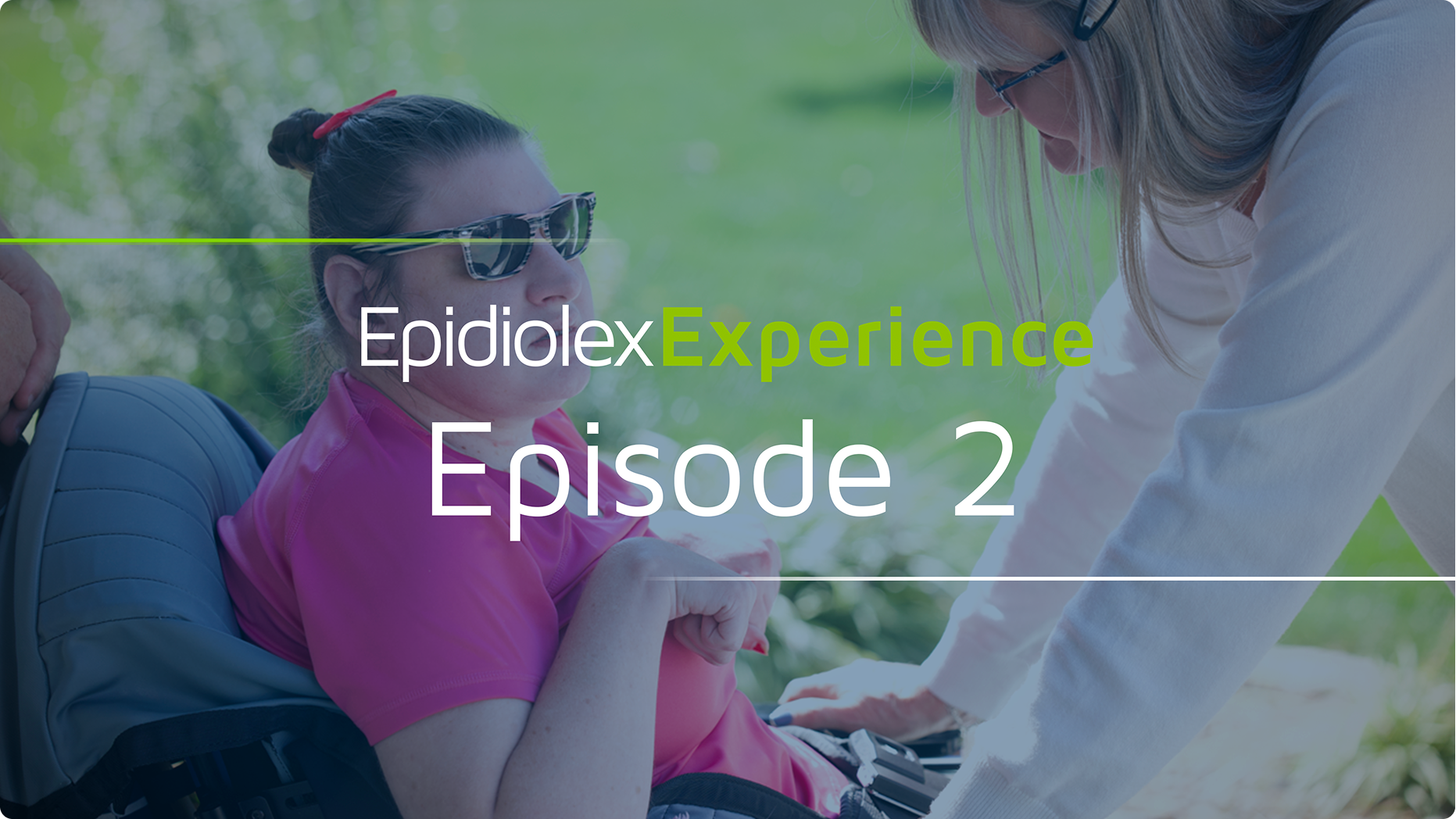Important Safety Information & Indications
Contraindication: Hypersensitivity
EPIDIOLEX (cannabidiol) oral solution is contraindicated in patients with a history of hypersensitivity to cannabidiol or any ingredients in the product.
Warnings & Precautions
Hepatic Injury:
EPIDIOLEX can cause dose-related transaminase elevations. Concomitant use of valproate and elevated transaminase levels at baseline increase this risk. Obtain transaminase and bilirubin levels prior to starting treatment, at 1, 3, and 6 months after initiation of treatment, and periodically thereafter, or as clinically indicated. Resolution of transaminase elevations occurred with discontinuation of EPIDIOLEX, reduction of EPIDIOLEX and/or concomitant valproate, or without dose reduction. For patients with elevated transaminase levels, consider dose reduction or discontinuation of EPIDIOLEX or concomitant medications known to affect the liver (e.g., valproate or clobazam). Dose adjustment and slower dose titration is recommended in patients with moderate or severe hepatic impairment. Consider not initiating EPIDIOLEX in patients with evidence of significant liver injury. There have been postmarketing reports of cholestatic or mixed patterns of liver injury. Elevated ammonia levels were reported in some patients with transaminase elevations; most taking concomitant valproate, clobazam, or both. Consider discontinuation or dose adjustment of valproate or clobazam if ammonia is elevated.
Somnolence and Sedation:
EPIDIOLEX can cause somnolence and sedation that generally occurs early in treatment and may diminish over time; these effects occur more commonly in patients using clobazam and may be potentiated by other CNS depressants.
Suicidal Behavior and Ideation:
Antiepileptic drugs (AEDs), including EPIDIOLEX, increase the risk of suicidal thoughts or behavior. Inform patients, caregivers, and families of the risk and advise them to monitor and report any signs of depression, suicidal thoughts or behavior, or unusual changes in mood or behavior. If these symptoms occur, consider if they are related to the AED or the underlying illness.
Withdrawal of Antiepileptic Drugs:
As with most AEDs, EPIDIOLEX should generally be withdrawn gradually because of the risk of increased seizure frequency and status epilepticus.
Adverse Reactions:
The most common adverse reactions in patients receiving EPIDIOLEX (≥10% and greater than placebo) include transaminase elevations; somnolence; decreased appetite; diarrhea; pyrexia; vomiting; fatigue, malaise, and asthenia; rash; insomnia, sleep disorder and poor-quality sleep; and infections. Hematologic abnormalities were also observed.
Pregnancy:
EPIDIOLEX should be used during pregnancy only if the potential benefit justifies the potential risk to the fetus. Encourage women who are taking EPIDIOLEX during pregnancy to enroll in the EPIDIOLEX Pregnancy Surveillance Program and the North American Antiepileptic Drug (NAAED) Pregnancy Registry.
Drug Interactions:
Strong inducers of CYP3A4 and CYP2C19 may affect EPIDIOLEX exposure. EPIDIOLEX may affect exposure to CYP2C19 substrates (e.g., clobazam, diazepam, stiripentol), orally administered P-gp substrates, or other substrates (see full Prescribing Information). Consider dose reduction of orally administered everolimus, with appropriate therapeutic drug monitoring, when everolimus is combined with EPIDIOLEX. A lower starting dose of everolimus is recommended when added to EPIDIOLEX therapy. Concomitant use of EPIDIOLEX and valproate increases the incidence of liver enzyme elevations. Pneumonia was observed more frequently with concomitant use of EPIDIOLEX and clobazam. Dosage adjustment of EPIDIOLEX or other concomitant medications may be necessary.
INDICATIONS:
EPIDIOLEX (cannabidiol) oral solution is indicated for the treatment of seizures associated with Lennox-Gastaut syndrome (LGS), Dravet syndrome (DS), or tuberous sclerosis complex (TSC) in patients 1 year of age and older.
Please read the EPIDIOLEX full Prescribing Information for additional important information.







